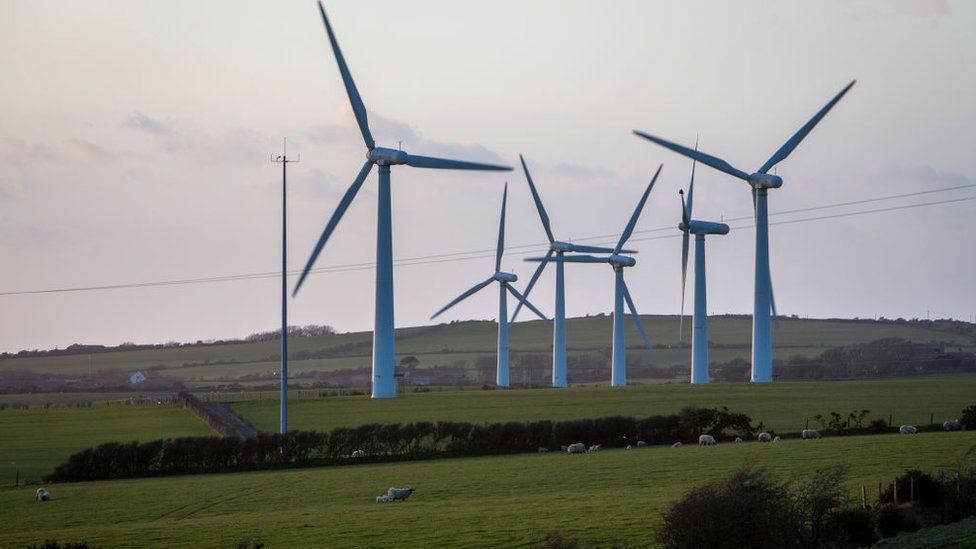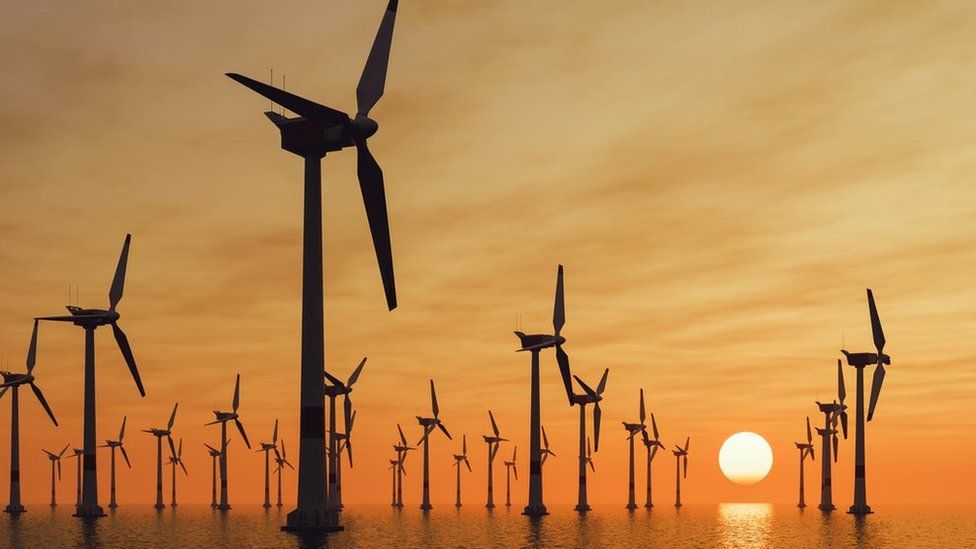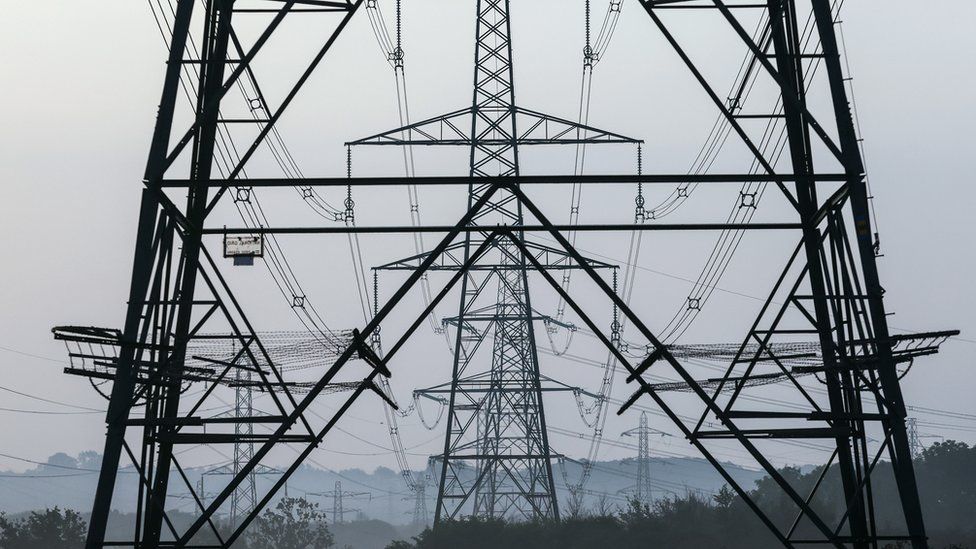Rishi Sunak to lift onshore wind ban as Tory MPs threaten revolt

Prime Minister Rishi Sunak is expected to ease an effective ban on new onshore wind farms in England to see off a rebellion by Conservative MPs.
Ministers are set to change planning rules to make it easier for onshore wind farms to be built.
Last year, the UK government promised to relax the rules by the end of April under pressure from some Tory MPs.
But with restrictions still in place, Tories have intervened again to force the government to act on its pledge.
A group of 25 Tory MPs, led by former COP26 president Sir Alok Sharma, had been attempting to push the government to ease planning restrictions, with an amendment to the Energy Bill.
- Call for wind farm planning rules to be changed
- ‘I’ve saved £200 because of my local wind turbine’
- Senior Tories back move to end onshore wind ban
The current rules, introduced under former Prime Minister David Cameron in 2015, mean an objection from just one person over an onshore wind development in England could stop it going ahead.
Sir Alok’s amendment would also ensure local communities willing to host turbines would receive direct benefits and that local decisions made on onshore wind cannot be overturned on appeal.
But Labour says its amendment goes further than Sir Alok’s by bringing the planning rules for onshore wind in line with all forms of major infrastructure.
MPs will consider the government’s Energy Bill in the House of Commons on Tuesday after returning from their summer break.
Ahead of the bill’s return, a government source told the BBC a minister would make a statement outlining “changes to planning policy with regard to onshore wind”.
Consultations on relaxing planning restrictions and benefits for communities who host wind farms closed earlier this year, with the government’s responses expected soon.
The proposals, which included relaxing a requirement for turbines to be built on pre-designated land, were criticised by the renewable energy industry as not going far enough.
The government said it backed the development of onshore wind where there was local support.
“We consulted on changes to national planning policy that could give local authorities more flexibility to respond to the views of their communities, and to demonstrate their support for areas suitable for onshore wind proposals,” a government spokesperson said.
The exact mechanism for measuring that support is yet to be determined.
Wind of change
Sir Alok told the BBC that he and the Tory MPs who backed his amendment were waiting to see what the government would come forward with in response to their proposals.
The former secretary for business and energy said wanted to see the “outdated” right of an individual to effectively block a wind farm to be removed.
He said: “The current situation we have is that just one objection can prevent a wind farm from being built.
“I mean, clearly, that is not a community veto. And frankly, I don’t think it’s a sensible way for a planning system to operate.”
He added there should be a “direct linkage” between communities who accept onshore wind farms and them getting a benefit, such as a discount on their energy bill.
Tory MP Sir Simon Clarke, who has backed Sir Alok’s amendment, said he was “optimistic” after talks with the government, but that there was still “more work to do”.
However, other Tory MPs have opposed onshore wind developments in their areas because of the impact on local residents and landscapes.
The announcement expected on Tuesday would be the second time Mr Sunak has been pressured to act on onshore win by his own MPs.
When he became prime minister last year, he said he would retain the effective ban on new onshore wind.
But facing a rebellion by his backbench MPs, he reversed that position in December last year and said the ban would be lifted.
Wind farms form part of the government’s attempts to decarbonise the energy system, end dependence on imported fossil fuels and lower household bills.
The UK is a world leader in offshore wind, with turbines in the sea generating enough power to meet the electricity needs of 41% of the nation’s homes last year, according to a report by the Crown Estate.
But research by the University of the West of England found policy change had led to a 97% decrease in the number of onshore wind turbines that have been granted planning permission between 2016 and 2021, compared to the period 2009-2014.
In a progress report this year, the Climate Change Committee said that the government had “lost its clear global climate leadership” by failing to invest in renewable energy, such as wind power.
Labour says the Energy Bill is “the first major test” of the new Energy Security and Net Zero Secretary, Claire Coutinho, who was appointed to the role last week.
Labour’s shadow energy and net zero secretary, Ed Miliband, said: “Will she persist with the Tories’ disastrous ban onshore wind, which has undermined Britain’s energy security and cost families money, or will she put country before party, stand up to her cabinet colleagues, and back homegrown clean power?”
Related Topics
- Wind power
- Alok Sharma
- Rishi Sunak
- Wind farms
-
‘I’ve saved £200 because of my local wind turbine’
-
11 February

-
-
Is the UK on track to meet its climate targets?
-
11 August

-
-
The looming battle over pylons for green energy
-
31 July

-
Published at Tue, 05 Sep 2023 11:12:20 +0000
